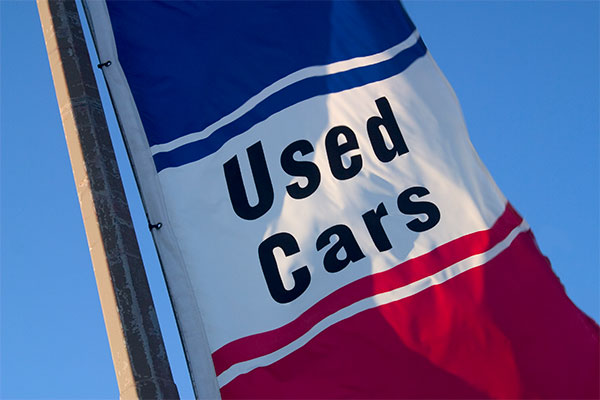Used Vehicle Sales Key for Dealers’ COVID-19 Recovery

Article Highlights:
- Used vehicle inventory should be a priority for your dealership.
- Automate the reconditioning process to reduce holding costs and cycle time.
Americans have endured more than a year of the COVID-19 pandemic, but we’re getting back to work and back on the road. As we do, vehicle demand continues to outpace supply, especially with ongoing production issues for new vehicles. As a result, consumers are interested in used inventory even with high prices, showing a major growth opportunity for your dealership.
Vehicle Demand Looks to Remain High
With tax return season upon us and the vaccine rollout in full swing, shoppers across the United States are ready to get back to business. And with consumer optimism steadily growing, there is no end in sight for strong vehicle demand, meaning prices should stay up. These high price points mean high profit potential for dealers.
But, supply continues to be limited, so how can you take advantage? You have to find ways to flip inventory faster. How long do you own a car before you sell it, and what portion of that time is tied up in reconditioning? If you’re like most dealers right now, the vehicle is in reconditioning longer than it’s on the lot.
How to Capitalize in Your Used Car Department
Your dealership will require a balanced approach to weather the challenges that may still lie ahead, including supporting new vehicle sales and fixed ops. Your used vehicle inventory can and should be a big part of your plan. By tracking and improving your reconditioning process, you can ensure you maximize that potential.
Presenting a high quality pre-owned vehicle comes down to expertise in reconditioning. The traditional, handwritten process just isn’t cutting it anymore. A truly effective and efficient reconditioning process allows your team to do the job accurately and quickly, while helping your dealership reduce cycle time and get vehicles sold quicker.
Having a system that automates your reconditioning workflow lets you monitor the process as it happens so you can see where there are bottlenecks and how long it takes to move newly acquired vehicles onto the lot. This means significantly reducing holding costs, saving you hundreds or even thousands of dollars throughout the reconditioning process.
A cheaper and more efficient reconditioning process will allow your dealership more opportunities to capitalize on used vehicles during low supply and beyond.
Related Articles:

The Future is Here, and It’s Powered by AI
The world changed forever in 1983. Most people weren’t ready for the internet revolution. In 2025, we’re on the brink of another technological revolution.

NADA 2025: Working in a Winter Wonderland
This year's show proved that the auto industry can handle anything. If you couldn't make it, find out what happened in the Reynolds booth.

NADA… the Catalyst for 2025: What’s Ahead for Reynolds
With the NADA show now behind us, take a peek at where Reynolds is headed this year.

Why Your Data Is Wickedly Underutilized
In today’s digital world, your data is your most valuable factor for success, especially your first-party data. But the thing is, there’s potential for it…















